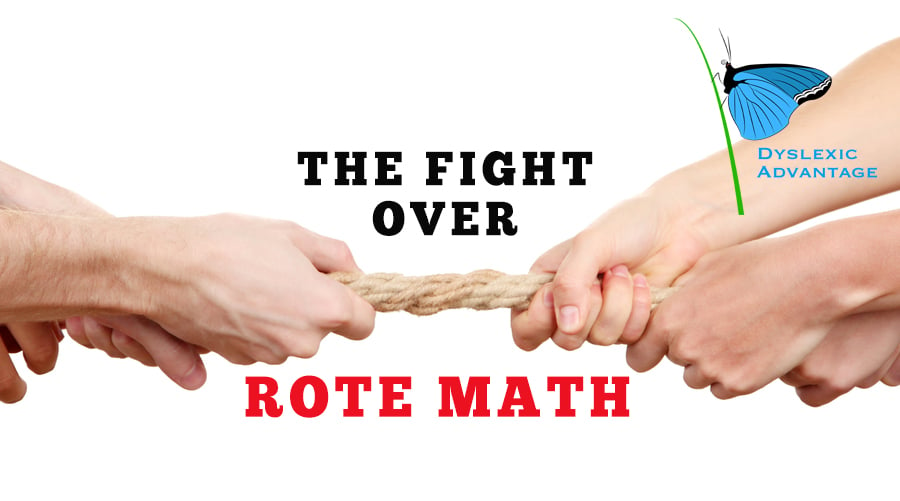In groundbreaking research, researchers at MIT or the Massachusetts Institute of Technology reported that dyslexic children and adults have “a diminished ability to acclimate to a repeated input in their paper titled “Dysfunction of Rapid Neural Adaption in Dyslexia.” Like many research papers, dyslexia is seen through a negative lens (‘dysfunction’) and the take-home points through university press releases, similarly so, however the findings are interesting ones and fit with an evolving picture of dyslexia as a learning difference (rather than disease or disability) that extends beyond reading and has ramifications for many aspects of education. “It’s a difference in the brain that’s not about reading per se, but it’s a difference in perceptual learning that’s pretty broad,” says John Gabrieli, who is the study’s […]
[PREMIUM] Latest Research: Dyslexia, Sequential Memory, and Seeing the Big Picture
“My mind doesn’t work like a train track. It’s more like a web page with lots of hyperlinks.” – dyslexic honors college student. It’s refreshing to see that more researchers take an interest on dyslexia beyond reading. In this recent paper from Belgium and Missouri, the challenges of remembering sequential information for dyslexics and non-dyslexics was reviewed. Both working memory and sequencing were examined. Working memory is a type of short-term memory necessary for keeping information ‘in mind.’ Sequencing is remembering the order that things are said. It’s activities such as this that that can make something like following classroom instructions or remembering computer passwords easy or hard. Several interesting observations were made from their review of the research literature: – Dyslexic children and adults tend […]
[PREMIUM] Tips from a Dyslexic World Memory Champion
When people say they would like to ‘brain train’ or get smarter for school, they often mean they want to make their brains more efficient – so they learn more, but also work less. One of the most straightforward ways to do this is to boost memory – and for most dyslexic people, the way you train may be more important than how hard or how much. We talk about memory trade-offs a bit in our book, The Dyslexic Advantage, but briefly, in general, dyslexic people of all ages tend to show a preference for personally-experienced memories rather than dry facts that need to be memorized by rote. A trick for memorizing more efficiently is to take the dry stuff and transform it into something […]
The Fight over Rote Math
If you think you've been hearing conflicting information about rote math in the news or from schools, you're absolutely right. The fight is spilling over to educational policymakers and makers of standardized tests such as the College Board. For dyslexic and...
Dyslexic Advantage Premium – Issue 11 Organizing Creativity [Premium]
Premium Issue 11 October 29, 2016 Organizing Creativity, Stealth Dyslexia, Dyslexia and Self Image, Memorizing for School, What Worked for 2E Gifted Dyslexics, Art Therapy for Dysgraphia, Hands-On Math for Fractions, More Interactive Reading Strategies, Mastering Foreign Languages and More This issue has memory strategies that seem to be helpful for a majority of dyslexic folk – whether it’s history facts, science vocabulary, or foreign languages. Subscriptions support Dyslexic Advantage. [/wcm_restrict]
Understanding Processing Speed and Dyslexia [Premium]
When families come together to discuss test scores, no group of scores surprises them as much as “Processing Speed.” Processing Speed scores on psychometric exams might mean Coding and Symbol Search scores on the WISC intelligence exams or Visual Matching and Paired Cancellation on the Woodcock Johnson. Processing Speed scores on these subtests are typically lower for dyslexic students, but on other tasks like Decision Making and in real life, these students may be quite quick and even quicker than their peers at various tasks such as insight-based problem solving or situational awareness (helpful for athletics, for instance). Understanding the true significance of Processing Speed Difference in Dyslexia, then is important not only for recognizing when accommodations may be appropriate school, but also for identifying […]
Individual Differences: How Do You Remember ? [Premium]
How do you remember what happened? As depersonalized facts and happenings? Or detailed sensory scenes and experiences? In one of the clearest demonstrations studies so far, researchers showed striking differences between how different people told them how they remembered and brain connectivity patterns. The research is relevant to everyone, of course, whether parents, teachers, or team leaders. From Science Daily, “For decades, nearly all research on memory and brain function has treated people as the same, averaging across individuals,” said lead investigator Dr. Signy Sheldon, now an assistant professor of Psychology at McGill University. “Yet as we know from experience and from comparing our recollection to others, peoples’ memory traits vary. Our study shows that these memory traits correspond to stable differences in brain function, even when we […]
The Wisdom of Pooh and Dyslexia
“You are braver than you believe, and stronger than you seem, and smarter than you think.” – A.A. Milne Winnie the Pooh’s advice is smarter than we may think when it comes to encouraging young readers. What’s better than reading intervention and working memory training? Reading intervention and working memory + education about intelligence. If students believe they are not intelligent or bad at school, that negative mindset is likely to sabotage even well-planned educational programs. Students who believe that they become more intelligent step-by-step by persistence and hard work, are significantly higher achieving in reading and working memory, but also math and science. Now researchers are discovering that some studies that didn’t discover significant improvements in working memory training may have been due to this […]
The Truth About Multi-Tasking | Premium
Are you a good multi-tasker? If you answered ‘yes’, scientists at Stanford might disagree with you. When students from Stanford participated in a multitasking experiment with color bars, those who multitasked with more media had more trouble ignoring irrelevant stimuli. Multi-Tasking Has Its Costs From the report: “Heavy Media Multitaskers have greater difficulty filtering out irrelevant stimuli from their environment..and they are less effective in suppressing the activation of irrelevant task sets (task switching). Dyslexics as a group are more sensitive to visual and auditory distractions As a group, dyslexic people are more likely to be sensitive to distractions (both visual and auditory) which is why some students request and receive small group testing accommodations for high stakes tests. To learn more about trouble […]

![Latest Research: Repetition As a Poor Way to Teach Dyslexics [Premium]](https://www.dyslexicadvantage.org/wp-content/uploads/2016/12/shutterstock_133874900.jpg)
![[PREMIUM] Latest Research: Dyslexia, Sequential Memory, and Seeing the Big Picture](https://www.dyslexicadvantage.org/wp-content/uploads/2016/11/calendar-sequential-memory-shutterstock-400x250.jpg)
![[PREMIUM] Tips from a Dyslexic World Memory Champion](https://www.dyslexicadvantage.org/wp-content/uploads/2016/11/shutterstock_266694722-scaled.jpg)

![Dyslexic Advantage Premium – Issue 11 Organizing Creativity [Premium]](https://www.dyslexicadvantage.org/wp-content/uploads/2016/10/Screen-Shot-2016-10-29-at-4.27.33-PM.jpg)
![Understanding Processing Speed and Dyslexia [Premium]](https://www.dyslexicadvantage.org/wp-content/uploads/2016/08/shutterstock_111687563.jpg)
![Individual Differences: How Do You Remember ? [Premium]](https://www.dyslexicadvantage.org/wp-content/uploads/2016/07/memorize-our-shutterstock.jpg)















